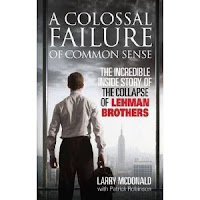Guest Blog by Katheryn Rivas
As Corporate Social Responsibility, with all its divergent meanings and applications, burgeons into a more common practice, companies have traditionally taken up the call of CSR in part from the growing pressure of investors and consumers who are now more "ethically aware". In other words, consumers, who have become more educated about the ways in which unrestrained global capitalism affects the environment, demand that the companies who produce their products do so in a more responsible manner. Of course, this is all well and good, as corporations must be responsive to their investors. Simply put, it's good business. After all, the customer is always right.
In the past decade we've seen an enormous proliferation of products that are touted as "green". While there is no one standard, regulated definition of green or eco-friendly, it's a label that is taken to mean a number of things. The product may be "fair trade certified", meaning it meets agreed-upon standards for ethically responsible labor practices, or it may have not been tested on animals, or maybe it contains no chemical additives, and so on.
Corporate Social Responsibility, as noted in Wayne Visser’s new book, The Age of Responsibility, must occur on a much more systemic level. This is how a real impact is made. Not by churning out "eco-friendly" products and marketing the heck out of them. Of course, CSR requires communication between each business and its respective investors and customers. And rendering transparent a business’s internal processes and how they effect our social and environmental worlds is a central component of CSR. But turning this communication (which has the potential to be substantive, co-creating dialogue between businesses and their customers) into a marketing gimmick essential cheapens and mocks the goals that drive our cause.
If a difference is really to be made, let’s stop treating investors and consumers as passive children. Let’s stop trying to convince them that they are really involving themselves in solutions to the world’s problems by consuming products, no matter how ethically the product is made. A business products should be marketed and purchased because they provide real value to the person who consumes them. No matter how well-intentioned, inserting this too facile message that "if you buy our product, you buy into the workings of a better, more just world" only serves to confuse the aims of CSR.
As Visser has noted, ultimately, the purpose of business is to serve society. Making a positive contribution to society is the essence of CSR 2.0--not just a marginal afterthought." If this is true, if the purpose of business is truly to serve society, then marketing social and environmental initiatives vis a vis products is a hypocrisy of the highest order. The Age of Marketing is over. It’s time for CSR to step up its game and move beyond green washing.
About the author
This guest contribution was submitted by Katheryn Rivas, who specializes in writing about online universities. Questions and comments can be sent to: katherynrivas87@gmail.com.








